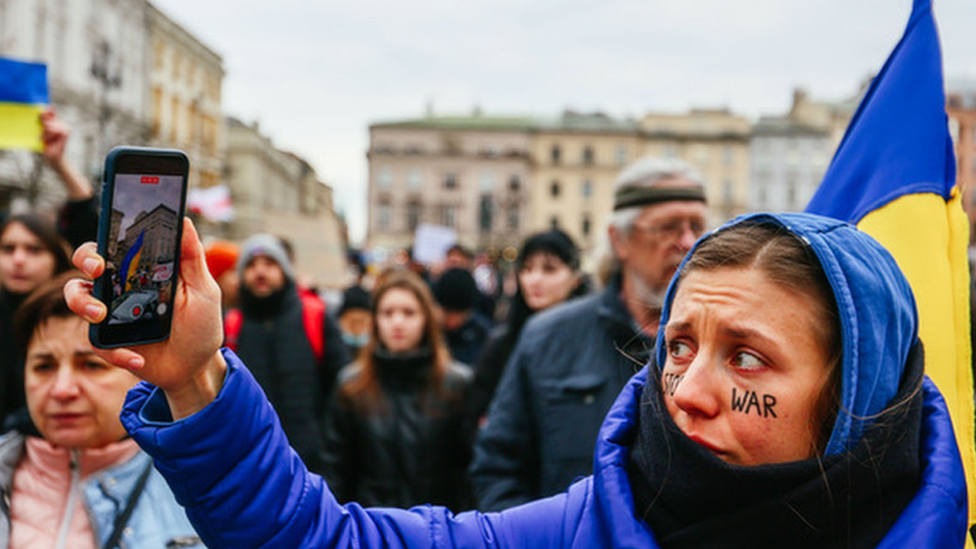Ukraine says it is fighting first 'hybrid war'
- Published
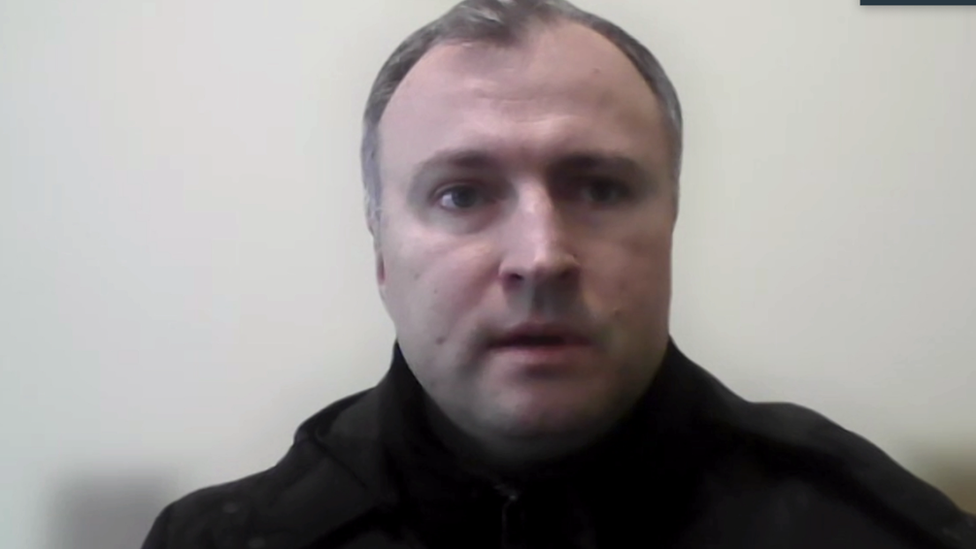
Viktor Zhora was giving a press conference on the cyber-conflict from an undisclosed location
Ukraine's cyber-security authority says it is fighting a war in the digital realm, as well as on the ground.
The ministry says it is facing constant cyber-attacks against its government and infrastructure networks, with individual officials now being targeted.
It claimed that its cyber-defences are repelling most attacks.
But it added that the cyber-conflict with Russia was unprecedented, describing it as a "hybrid war".
In the first press conference since the war began, Viktor Zhora, deputy chairman of the State Service of Special Communications, said: "These two wars [we are fighting] are part of this hybrid war.
"This is happening for the first time in history and I believe that cyber-war can only be ended with the end of conventional war, and we will do everything we can to bring this moment closer."
Mr Zhora said that his cyber-security teams have been working to defend critical Ukrainian web services successfully and that "they are not afraid of Russian" attacks on their power grids or nuclear sites.
'Cyber-warriors'
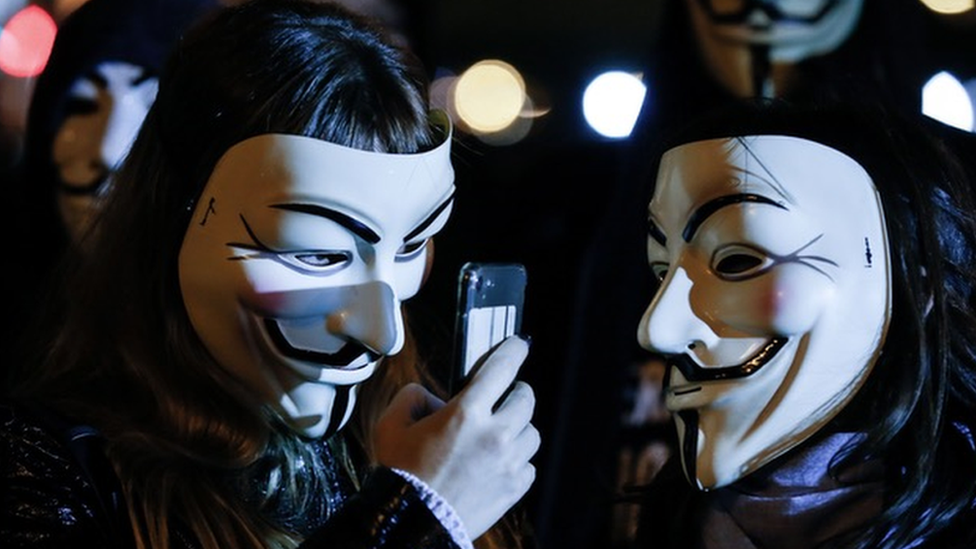
The Anonymous hacking collective has taken up cyber-arms against Russia
In 2015 and 2016, hackers, thought to be under orders from the Kremlin, caused power cuts to Ukrainian cities.
Western intelligence services have blamed Russia for other attacks on Ukraine, such as the NotPetya one in 2017.
In the weeks leading up to the invasion, the country suffered three separate waves of low level cyber-attacks, one of which the UK and US has blamed on Russian military hackers., external
Government and financial service websites were knocked offline briefly, and some were defaced with a warning to Ukrainians to "expect the worst".
At the same time, authorities discovered a more serious "wiper" attack, which removed the data from a small number of private company networks in Ukraine.
However, the cyber-security world has been surprised by a lack of large impactful attacks from Russia during the war.
Mr Zhora says they are happening but Ukraine's defences are blocking them.
IT Army of Ukraine
Since the invasion began, the ministry has also taken the highly controversial step of launching an "IT Army of Ukraine", which has been carrying out cyber-attacks on Russian targets. This included attempts to disrupt transport and power networks.
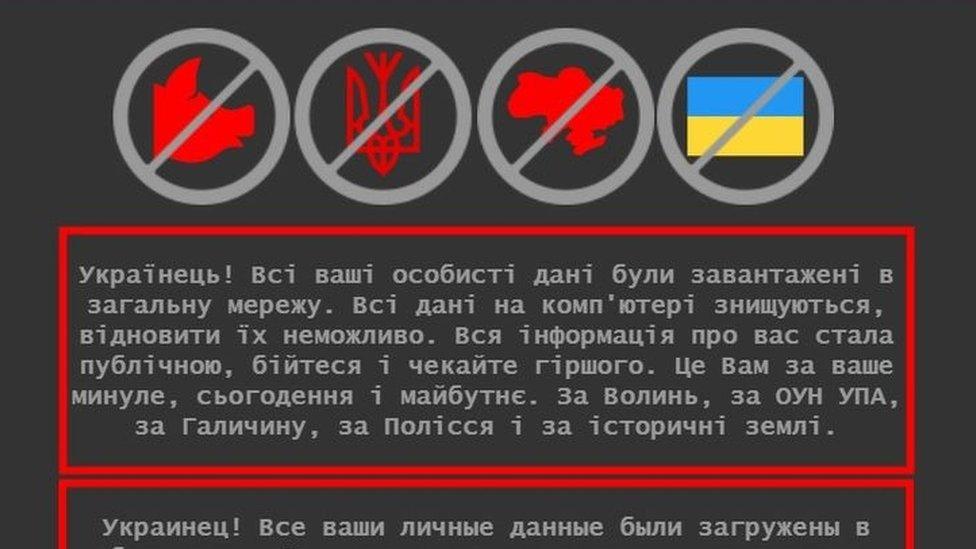
Ukraine websites were defaced with a threatening message in February
The Telegram group for the organisation now has 270,000 members, but the ministry estimates that there could be as many as 400,000 hackers fighting online for Ukraine.
Mr Zhora defended the formation of the cyber-army, insisting that it is a "volunteer movement" and that no attacks on civilian computer networks are being carried out.
"We call it a cyber-resistance and we're doing everything possible to protect our land and our cyber-space. We are trying to protect our networks and to make the aggressor feel uncomfortable with their actions in cyber-space and in Ukrainian land.
"These cyber-warriors are not targeting civil targets, they are targeting military and government targets."
World order changed
Other groups, including the hacker collective Anonymous, have joined the fight, declaring "cyber-war" on President Putin.
The group claims to have been taking down Russian websites, defacing them and encouraging people to "review bomb" Russian businesses online with messages about the war.
Mr Zhora says he can't condone the illegal hacking, but that normal peacetime rules don't apply.
"We do not welcome any illegal activity in cyber-space. We believe that every part should be responsible with their actions. But the world order changed on 24 February.
"We have a martial law here in Ukraine and I don't think that appealing to moral principles works, since our enemy doesn't have any principles."
Related topics
- Published25 February 2022
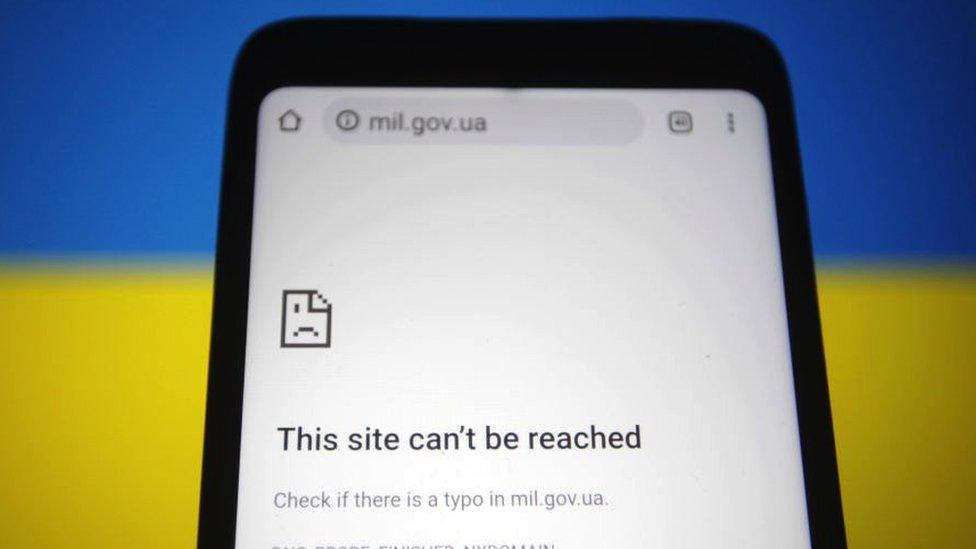
- Published28 February 2022
